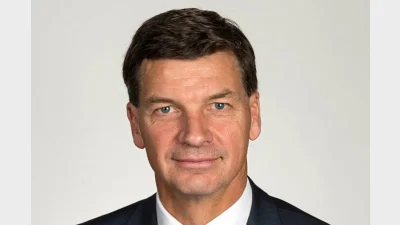Nuclear energy’s viability ‘peaked 50 years ago’



With the Coalition arguing that the time has come for nuclear energy, talk is increasing regarding the role nuclear could play alongside renewables to reduce greenhouse gas emission.
Last week, Opposition Leader Peter Dutton outlined a plan to put Australia on the nuclear map with the construction of seven nuclear power plants at the sites of former coal plants.
At the time, Dutton said nuclear power would allow Australia to tap into a cheaper and cleaner energy source, adding that: “Of the world’s 20 largest economies, Australia is the only one not using nuclear energy or moving towards using it.”
Speaking to Super Review, Nanuk Asset Management CIO Thomas King suggested that Australia is late to the party, noting that five decades ago it would have made economic sense to invest in nuclear energy at a large scale.
In the current context, he said, the truth is the financial viability of nuclear energy is simply “not as compelling”.
“At that time, costs were significantly lower and, as a country, we were better positioned to deliver projects of this nature. However, economic considerations have changed,” King said.
“Cheaper sources of generation have emerged and will continue to get cheaper over the next two decades and the costs and regulatory hurdles for nuclear have risen substantially.”
He suggested that even if federal and state governments were to abolish prohibitions on nuclear, “no one would do it”.
“Nuclear energy is a very well proven, very safe, reliable source of electricity but no one would do it because it’s relatively very expensive. It takes a very long time to commission,” he said.
“[And] the way the electricity industry is evolving structurally and decarbonising, nuclear doesn’t appear to be an economically sensible part of generating mix on the time frames that it takes to deploy.”
Earlier this month, PGIM’s latest report on fuelling the future highlighted that multiple energy sources will be required to meet the growing global demand for renewable energy, including nuclear.
It, however, cautioned that permissions and cost challenges have stunted the development of the technology since the 1970s. Moreover, it flagged slow progress on small-scale modular reactors (SMRs).
“China is the only country to have a land-based SMR currently in operation. While many new SMR projects are announced, few make it to the end because of supply chain challenges as well as cost overruns and delays that make the projects no longer economical,” the asset manager pointed out.
In contrast, Global X’s head of investment strategy, Scott Helfstein, recently said nuclear energy, particularly SMRs, could be the missing piece of the puzzle in the growing demand for electrification across the globe.
Nanuk’s King, however, believes in other, more appealing options.
“We are seeing growth in electricity demand, that hasn’t occurred for decades, and, if you want to meet that growing demand, the logical thing to do is to do so from the cheapest sources, and that is what’s happening with the deployment of renewables, which are not only by far the cheapest sources of incremental new generation, but also by far the most easily deployed on a rapid basis,” he told Super Review.
“Nuclear isn’t either of those things,” he said.
Importantly, King highlighted concerns regarding the higher costs associated with operating a nuclear plant.
“If you do have a nuclear plant in operation, the operating costs are modest. They’re not zero, but they’re modest, and so nuclear plants that were built 30–50 years ago in an environment where regulations made building them much cheaper, and those assets are now depreciated, they produce relatively cheap baseload electricity.
“If you build a new power plant today, it’s going to be several times more expensive than those older plants to build, and by definition, it will only be economically viable if you’re able to sell the power at very high cost and that is only if you are able to utilise the assets at a very high rate,” he pointed out.
Moreover, despite Dutton assuring that Australia could use existing transmission infrastructure, King said “antiquated” systems would need to be overhauled.
“The government, in its position, effectively gets to decide who bears that cost. Is it the government itself? Is it consumers through higher prices? Is it the owners of assets that are going to get mandated out of existence?”
Ultimately, King said he finds it “extraordinarily hard to see” how large-scale nuclear power in Australia “could end up doing anything other than costing an extraordinary amount”.
According to the World Nuclear Association, nuclear energy now provides about 10 per cent of the world’s electricity from about 440 power reactors and is the world’s second-largest source of low-carbon power.
In 2022, some 13 countries derived at least one-quarter of their electricity from nuclear energy. Moreover, the association said France gets up to around 70 per cent of its electricity from nuclear energy while Ukraine, Slovakia, Belgium, and Hungary get about half from nuclear.
Meanwhile, Japan, which used to rely on nuclear power for over a quarter of its electricity, is expected to return to that level, while almost 30 other countries are considering, planning or starting nuclear power programs, the global body added.
Recommended for you
In what is being called a coordinated cyber attack, a number of Australia’s largest superannuation funds have suffered a breach with thousands of user accounts compromised.
Donald Trump’s tariff blitz has shaken global markets, fuelling uncertainty over trade retaliation, recession, and economic fallout, while Australia, though bruised, escapes relatively unscathed.
Shadow treasurer Angus Taylor has vowed to slash red tape and introduce a suite of financial services reforms aimed at transforming Australia into a leading financial hub.
Deglobalisation is emerging as a major driver of infrastructure debt opportunities as regions onshore vital industries, a superannuation fund-owned manager has said.













